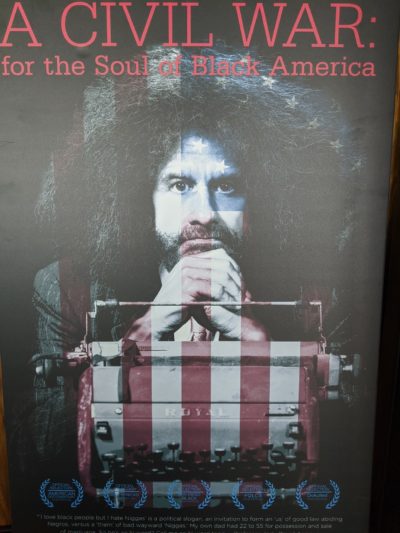 Jody Armour is the Roy P. Crocker Professor of Law at the University of Southern California and author of Negrophobia and Reasonable Racism: The Hidden Costs of Being Black in America, but don’t think this dude is some dry, boring, law professor type. Hell no. Jody’s father taught himself law in prison, and Jody struggled to get where he is today. There’s no chance of his ever forgetting where he came from. We talk about race, language, justice, shame, and redemption. Zero fluff in this one.
Jody Armour is the Roy P. Crocker Professor of Law at the University of Southern California and author of Negrophobia and Reasonable Racism: The Hidden Costs of Being Black in America, but don’t think this dude is some dry, boring, law professor type. Hell no. Jody’s father taught himself law in prison, and Jody struggled to get where he is today. There’s no chance of his ever forgetting where he came from. We talk about race, language, justice, shame, and redemption. Zero fluff in this one.
Jody’s Twitter.
Find me on Instagram or Twitter.
To listen to this episode, plus get access to bonus content including bonus episodes, newsletters, and exclusive blog posts, please head over to Substack.
Music: “Brightside of the Sun,” by Basin and Range; “Nothing to My Name” by István Varga-Roman; “Smoke Alarm,” by Carsie Blanton.

With regards to “American Dirt” it’s not so much a case of cultural appropriation, but cultural MISREPRESENTATION. Jeanine Cummins is not being attacked for being a half-Puerto Rican writing about Mexico, but for creating false stereotypes that distort the thorny issue of illegal immigration from Mexico to the United States.
Someone on Twitter did accuse me of judging Cummins without even bothering to read the book, so I did –at least all the pages Amazon allowed through its free sample– and as a Mexican I can honestly say I could barely recognize the things she mentioned in the book, along with the colloquial language she choose to employ for her characters.
And to anyone saying I’m just applying reverse racism, I’d like to direct you to “La Reina del Sur” (The Queen of the South) written by a Spanish writer –Arturo Perez Reverte– who clearly did his homework when he spent a lot of time familiarizing himself with both Mexico and narco culture, and because of that he received nothing but accolades from Mexican readers.
Hey RPJ. As always, thanks for engaging. I wonder though, why is this considered “cultural misrepresentation” rather than just bad writing? If I wrote a book about boxing, and boxers said, “It’s not like that,” nobody would accuse me of misappropriating or any other catch-phrase. They’d just say I wrote a shitty book. Every culture on earth has been misrepresented — often by members of that culture. What’s “Mexican culture” mean, anyway? Does it include Indians? If so, which? Chiapas is very different from Baja, right?
Well, here’s the thing: Despite my criticism about the book, I have to admit it is NOT badly written! Meaning it’s an engaging narrative about a young woman trying to get out of Mexico with her little son for fear of her life. But the way she constructs the narrative is the problem. For example: She talks about “narco roadblocks” cutting off communication between Acapulco and Mexico City, as if these urban centers were under constant siege –things are bad in Acapulco, but not THAT bad (and as far as I can tell, she never even visited Acapulco before writing the book!).
And you’re absolutely right, “Mexican” culture can mean many different things. In “La Reina del Sur” Pérez Reverte portrayed the popular culture of Culiacán, Sinaloa, along with their customs and the “narco corridos” Norteño bands like Los Tucanes de Tijuana compose to praise the deeds of the druglords –just like they used to do during the Mexican Revolution 100 years ago. Maybe someone from Culiacán would have found many flaws in the book, but as a citizen of Ciudad de México everything in the book felt completely realistic, despite being a work of fiction. Not so much with the small portion I read in “American Dirt.”
I’ve also heard people complaining on how Cummins doesn’t go deep enough in the reasons why Mexicans and Central Americans choose to risk their lives in order to attempt reaching the United States, but I would probably give her a pass on that –it’s not like Sci-Fi writers need to explain in detail how faster-than-light travel works in their imaginary universe, or that Uncle Tom’s House needs to explain the origins of slavery in America.
So, like I said in my first comment, I can see why the book is getting a lot of flak after reading a small sample, although I admit I’d need to read the whole thing in order to have a more informed opinion.